Writing Teaching Resources
Teaching writing strategies and the writing process this school year? Explore a comprehensive collection of teacher resources for primary English teachers — all created by teachers!
Stocked with graphic organisers, writing prompts, templates, worksheets and so much more, this collection of printable and digital activities is designed to help you as you help your students become more effective communicators and unleash their creativity and imagination.
Save time on lesson planning with resources that are aligned with the Australian curriculum (including version 9!) and have been through a careful review process by an expert member of our teacher team to ensure they're ready for your classroom and your students!
Are you looking for tips and tricks to add to your teacher toolkit this school year? Read on for a primer from our teacher team, including engaging activities for teaching writing inprimary school and a look at some of the different writing strategies your students will need to learn.
11 Writing Strategies Kids Should Know by the End of Primary School
We can't talk about teaching kids to write without talking about the different writing strategies that can help them do just that!
When it comes to teaching our students to become confident writers who articulate their ideas effectively, here are some of the strategies our teacher team prioritises:
1. Brainstorming
Brainstorming is something we often do in the classroom, and it's a crucial part of learning to generate the ideas that will drive students' writing as they progress through their educational journey. Kids should know how to create a list of potential topics or points related to a particular writing assignment.
With younger students, this is often done as a whole group by writing ideas and points on chart paper. In upper years, students transition over to using text-based materials to generate ideas and talking points.
2. Outlining
Before diving directly into any assignment, our students should be able to create a structured framework or outline. Teaching students how to create this outline will help them organise their thoughts and arguments for penning their essays, reports and research papers.

3. Using Graphic Organisers
Technically graphic organisers are classroom tools, so you may not think of their use as a writing strategy per se. However, learning to use these tools is another means of providing kids with the tools they need to organize their ideas and information before they sit down to write.
These organisers are particularly useful for expository writing — students can use them to outline main ideas, supporting details, and transitions.
Students can also take advantage of story maps when they are working on narrative writing to plot the key elements of a story, such as characters, setting, conflict, rising action, climax and resolution.
Graphic organisers such as the OREO strategy and hamburger paragraph are also great tools for students to use when working with opinion and persuasive texts.
4. Freewriting
Writer's block is the enemy of creativity, and it can easily frustrate young students who don't know where to begin.
When students freewrite, they write continuously without worrying about grammar or punctuation. This writing strategy can be extremely freeing — hence the name! — and helps frustrated writers move past that writer's block, generating fresh ideas.

5. Peer Editing
Learning to review and provide constructive feedback on each other's work is a great writing strategy to employ in your classroom to help students improve their writing quality and enhance their editing skills.
The strategy allows your students to learn from one another, and it arms them with an important tool they can use well into the future — calling on peers to provide a critical eye to a piece of writing.
6. Using Sensory Language
Working on descriptive writing? With this writing strategy, students engage the reader's senses through vivid and sensory language to create a more immersive experience.
7. Including Transitions and Connectives
As students become more proficient in the writing process, learning to use transitional words and phrases allows them to create smooth transitions between sentences and paragraphs. This strategy makes their writing more coherent and polished.
8. Incorporating Evidence
In persuasive, opinion and expository writing, students are taught to support their claims with evidence and examples to strengthen their arguments.
It takes some practice to train your students to use evidence in their writing, so it's often a good idea to start with something simple, like the R.A.C.E.S. strategy.
9. Crafting a Thesis Statement
In expository, opinion and persuasive writing, crafting clear and concise thesis statements that summarise the main point or argument of their essay helps students be more focused and organised in their writing.
This strategy can also have the effect of empowering students to express their ideas confidently and persuasively.
10. Incorporating Introductions and Conclusions
With this strategy, students practice crafting effective introductions and conclusions that grab the reader's attention and leave a lasting impression.
11. Following a Revision Checklist
Teaching your students to use a revision checklist is a strategy that will help them be more self-reflective, evaluating their own writing against the checklist criteria and becoming more aware of their strengths and weaknesses.

- Plus Plan
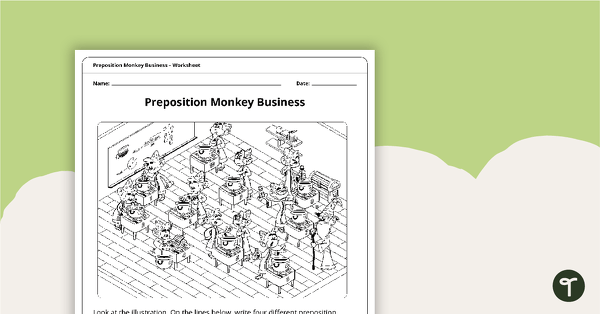
Preposition Monkey Business - Worksheet
A worksheet which includes an image prompt for students to make creative sentences about prepositions.
- Plus Plan
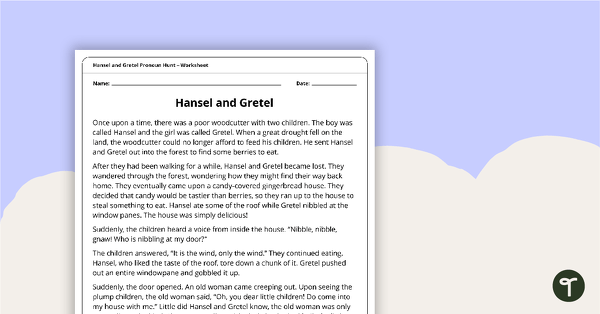
Pronoun Worksheet – Hansel and Gretel
Use this pronoun worksheet to get students identifying pronouns in the context of a well-known fairy tale.
- Plus Plan
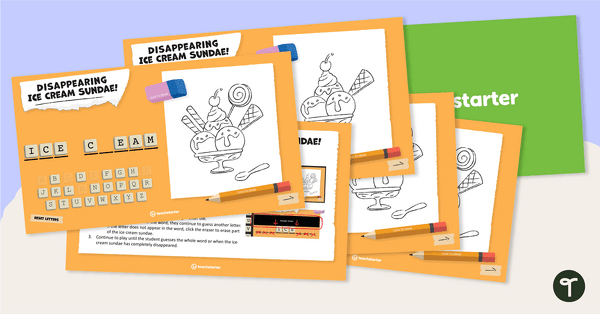
Disappearing Ice Cream Sundae (Hangman Alternative)
Use this alternative to hangman with your students when practising new vocabulary or wanting to play a fun game to finish a lesson.
- Plus Plan
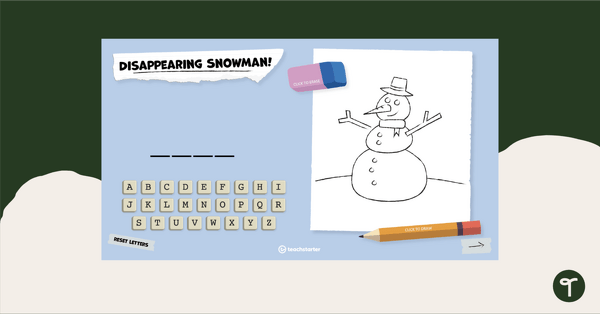
Disappearing Snowman (Hangman Alternative)
An interactive, kid-friendly hangman alternative.
- Plus Plan
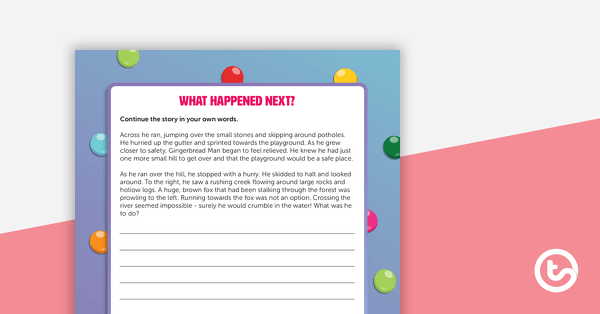
What Happened Next? The Gingerbread Man Writing Template
Finish The Gingerbread Man story in your own words.
- Plus Plan
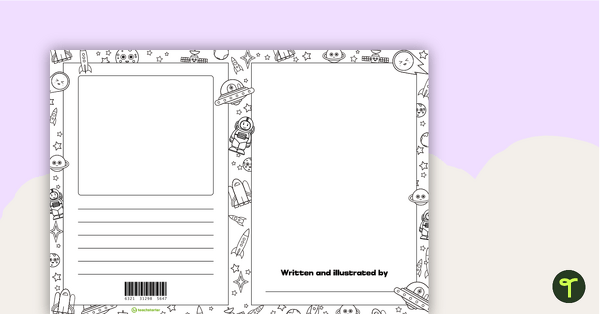
Narrative Booklet Template – Space Theme
A space-themed booklet for students to use when publishing their narrative texts.
- Plus Plan
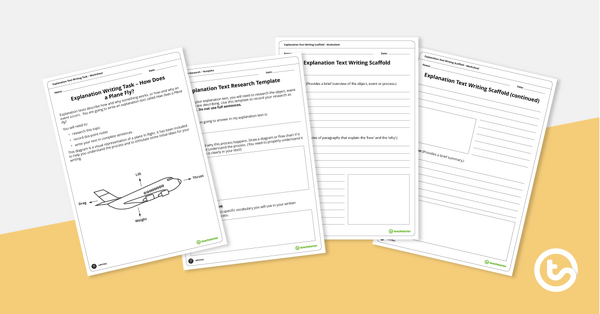
Explanation Text Writing Task – How Does a Plane Fly?
A scaffolded writing task for students to complete when learning about the explanation text type.
- Free Plan
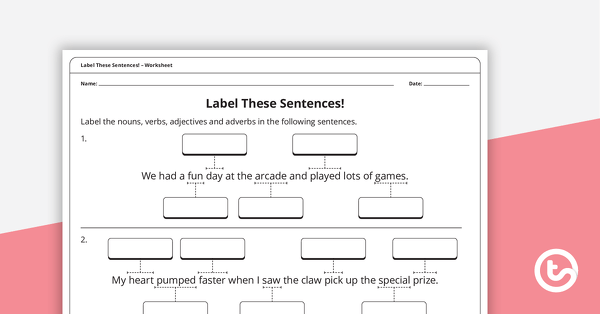
Label These Sentences! – Worksheet
A worksheet that requires students to label the parts of speech in sentences.
- Free Plan
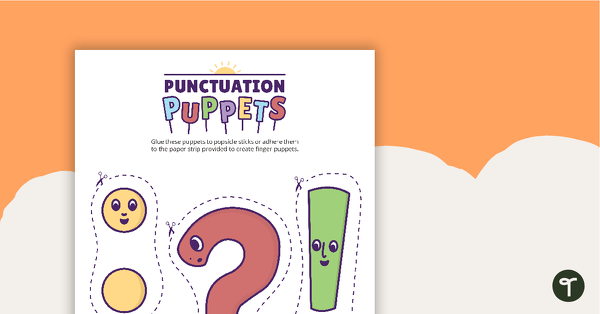
Punctuation Puppets
A range of different punctuation characters that can be cut out and used as puppets.
- Plus Plan
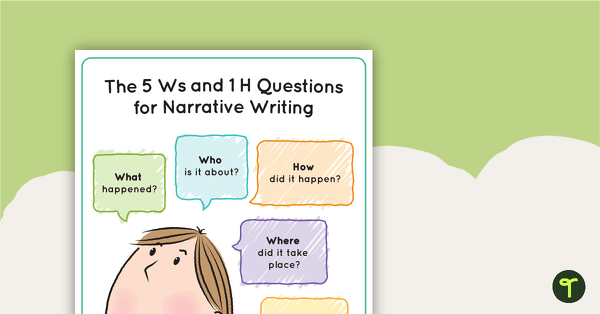
The 5 Ws and 1 H Questions for Narrative Writing Poster
A 5 Ws and 1 H poster to display in the classroom.
- Plus Plan
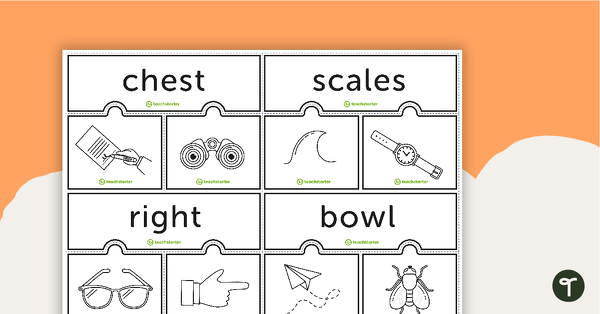
Multiple Meaning Match-Up Cards (Black and White Version)
16 match-up puzzles to use in the classroom when identifying homonyms.
- Plus Plan
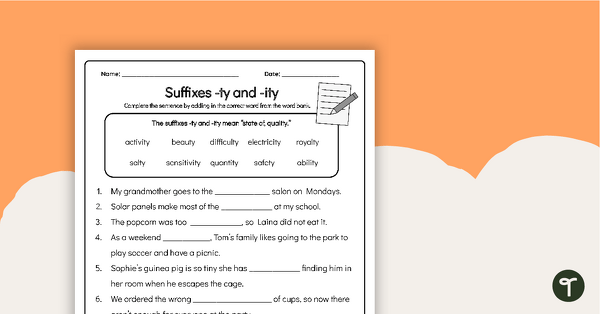
-Ty and -Ity Suffixes Worksheet
Practise using the suffixes -ty and -ity with a printable suffix worksheet.
- Plus Plan
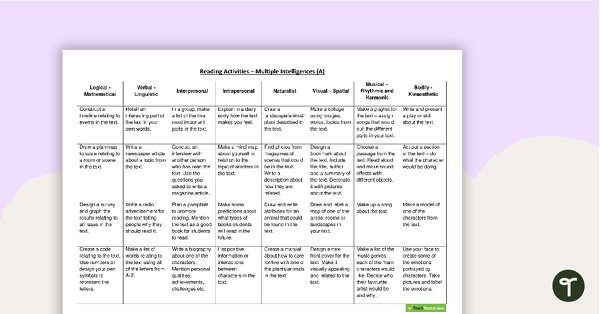
Multiple Intelligences Grid - Reading Activities (A)
A reading activities grid using Gardner's Multiple Intelligences.
- Plus Plan
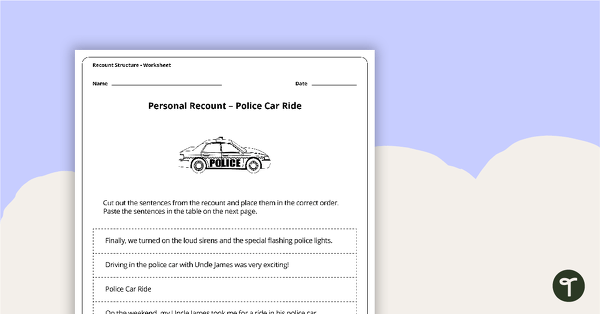
Personal Recount Sequencing Activity - Police Car Ride
A worksheet to use in the classroom when learning the sequence of a personal recount.
- Plus Plan
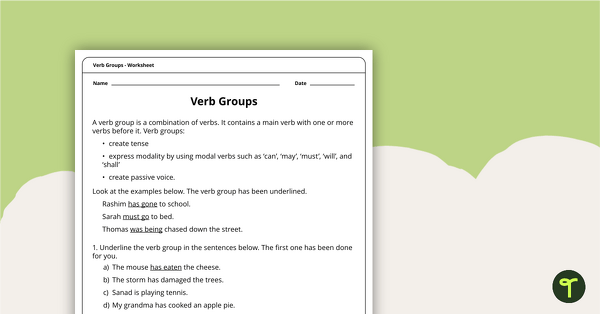
Verb Groups Worksheet
Explore verb groups and the words that surround verbs in sentences with this set of verb group worksheets.
- Plus Plan
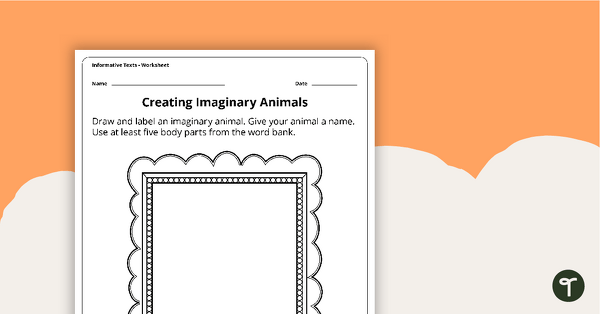
Creating an Imaginary Animal - Descriptive Language Activity
A creative activity to introduce students to descriptive and comparative language.
- Plus Plan
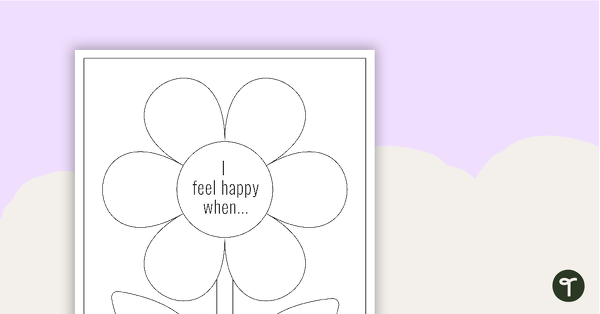
Nature-Inspired Gratitude Writing Prompt Sheets
A set of 5 nature-inspired gratitude prompt sheets.
- Plus Plan
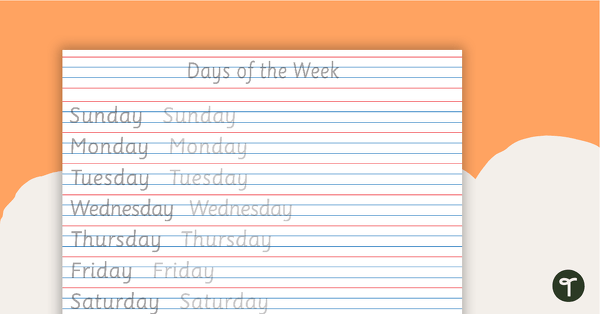
Handwriting Sheet - Days of the Week
A handwriting sheets for the days of the week.
- Plus Plan
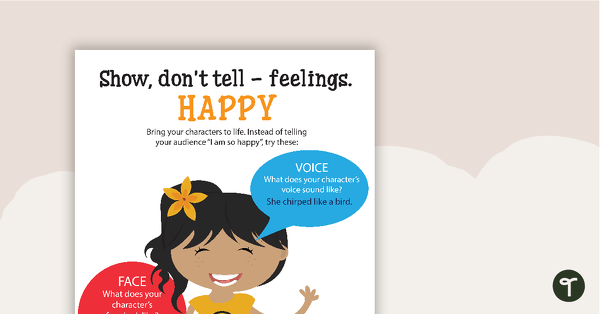
Developing Characters Poster Pack - Show, Don't Tell Feelings
A set of 16 posters about developing and describing characters when writing stories.
- Plus Plan
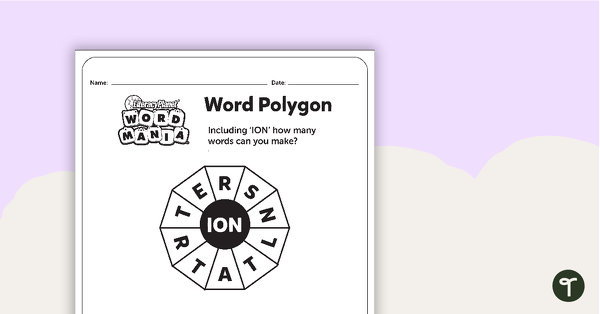
Word Polygon Worksheets - Levels 4, 5 and 6
4 word polygon worksheets.
- Plus Plan
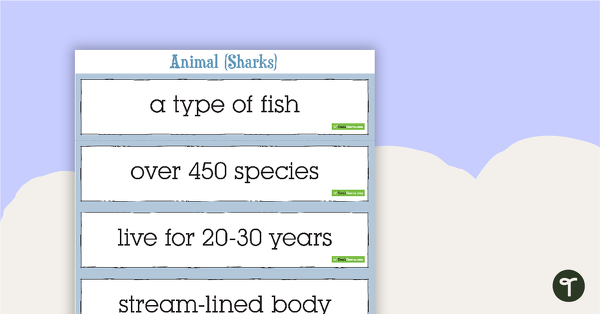
Fact File Sorting Activity
Use this fact sorting activity to teach your students about informative writing.
- Plus Plan
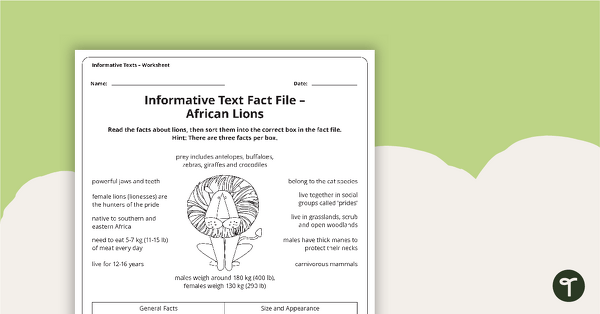
Information Report Fact Files and Scaffolding Sheet
Use this set of 5 fact files and information report scaffold sheet to support your students in writing a detailed and well-structured information report.
- Plus Plan
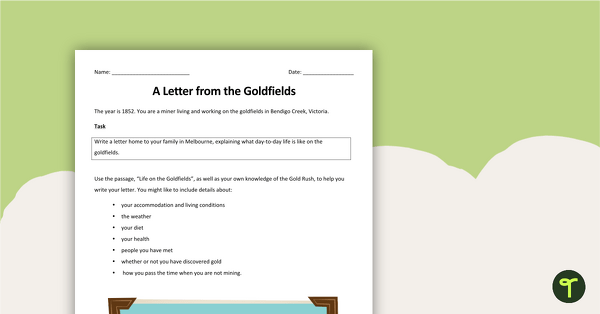
A Letter from the Goldfields - Writing Task
A writing task where students explain life on the Australian goldfields during 1852.
- Plus Plan
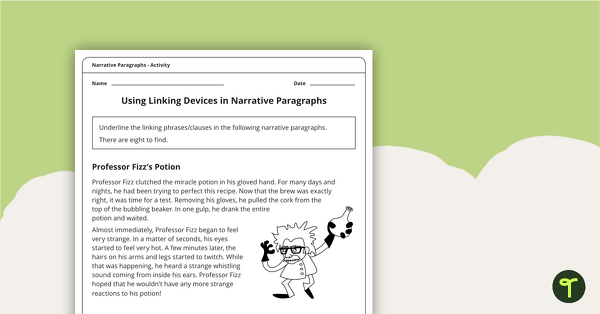
Using Linking Devices in Narrative Paragraphs Worksheets
3 worksheets teaching students how to link ideas when writing narrative paragraphs.
- Plus Plan
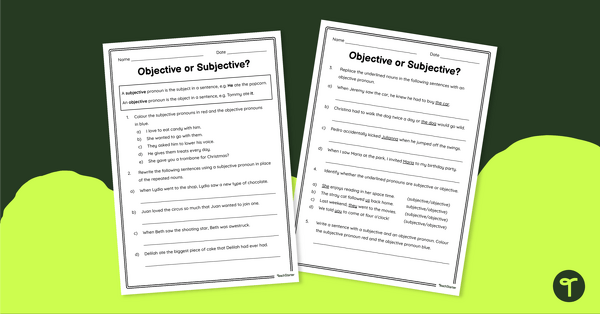
Subject and Object Pronouns Worksheet
Download this 2-page worksheet to get your students using objective and subjective pronouns.
- Plus Plan
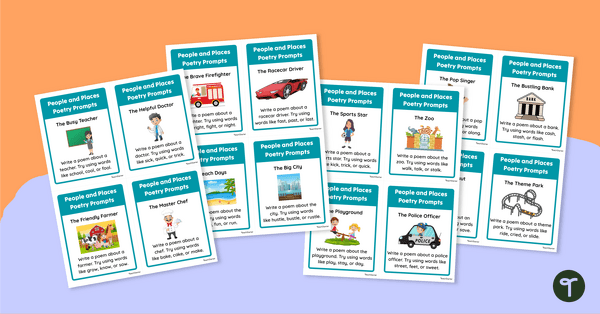
People and Places Poetry Prompt Task Cards
Use these writing prompts for poetry to help your students write simple poems about people and places.
- Plus Plan
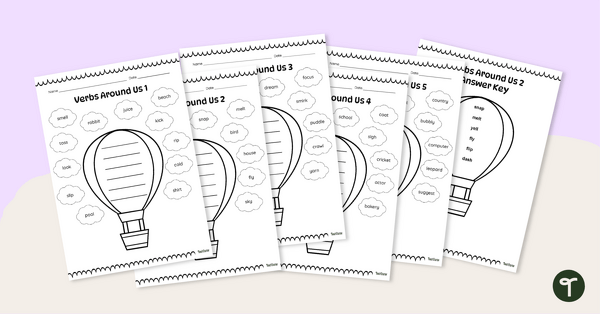
Verbs Around Us Worksheet Pack
Practise identifying verbs in a collection of words with this set of five verb worksheets.
- Plus Plan
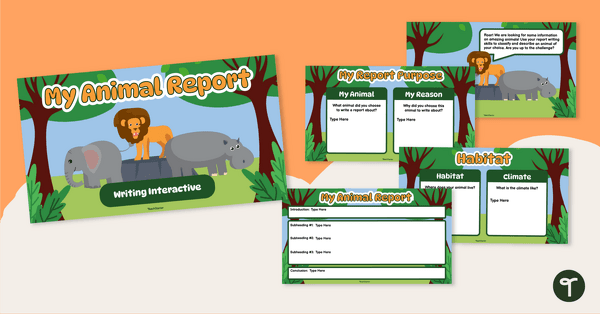
My Animal – Digital Report Writing Activity
Get your students to write an information report on an animal using this digital writing scaffold perfect for modelled and shared writing.
- Plus Plan
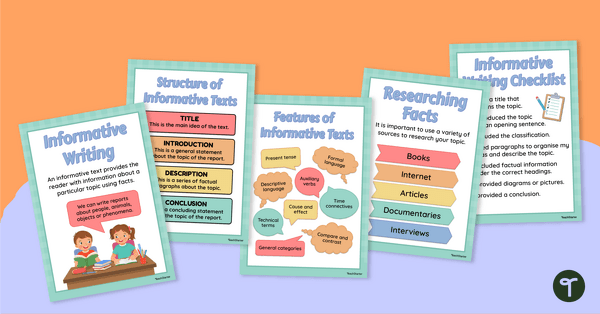
Informative Writing Posters
Display this set of 5 information report posters in your classroom during your informative writing unit.
- Plus Plan
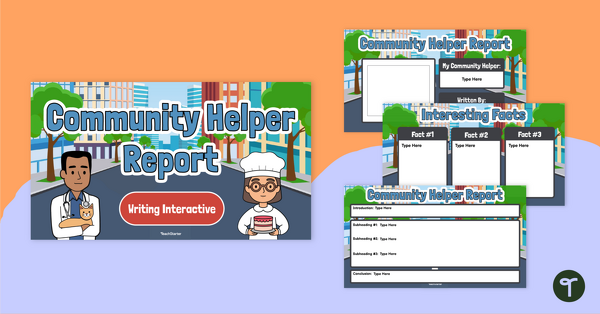
Community Helper – Digital Report Writing Activity
Use this community helpers interactive activity to model the purpose and structural elements of information reports.
- Plus Plan
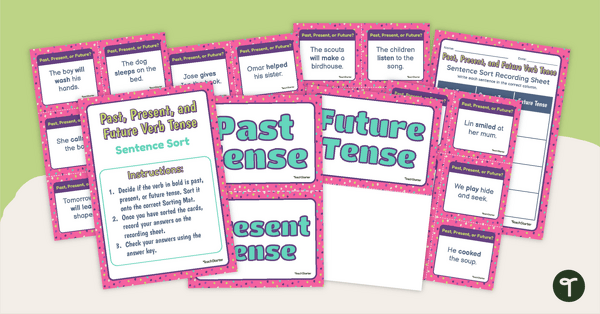
Past, Present, and Future Verb Tense Sentence Sort
Identify sentences written in past, present, and future tense with task cards designed for primary students.
- Plus Plan
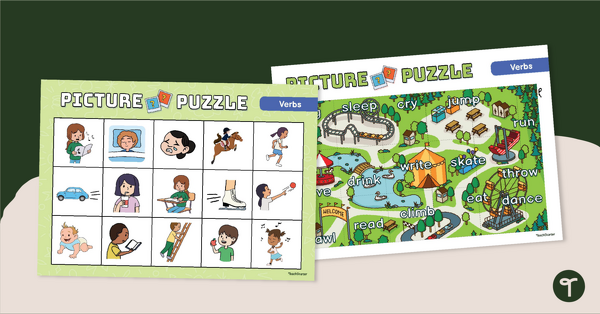
Action Verbs Picture Puzzle
Practise recognising and using verbs with this 15 piece picture puzzle.
- Writing Worksheets
- Writing Templates
- Writing Games
- Writing Posters
- Writing Teaching Presentations
- Writing Labels, Signs & Decorations
- Writing Word Walls
- Writing Projects
- Writing for Preschool/Kindergarten
- Writing for Foundation Year
- Writing for Year 1
- Writing for Year 2
- Writing for Year 3
- Writing for Year 4
- Writing for Year 5
- Writing for Year 6
- Writing for Year 7